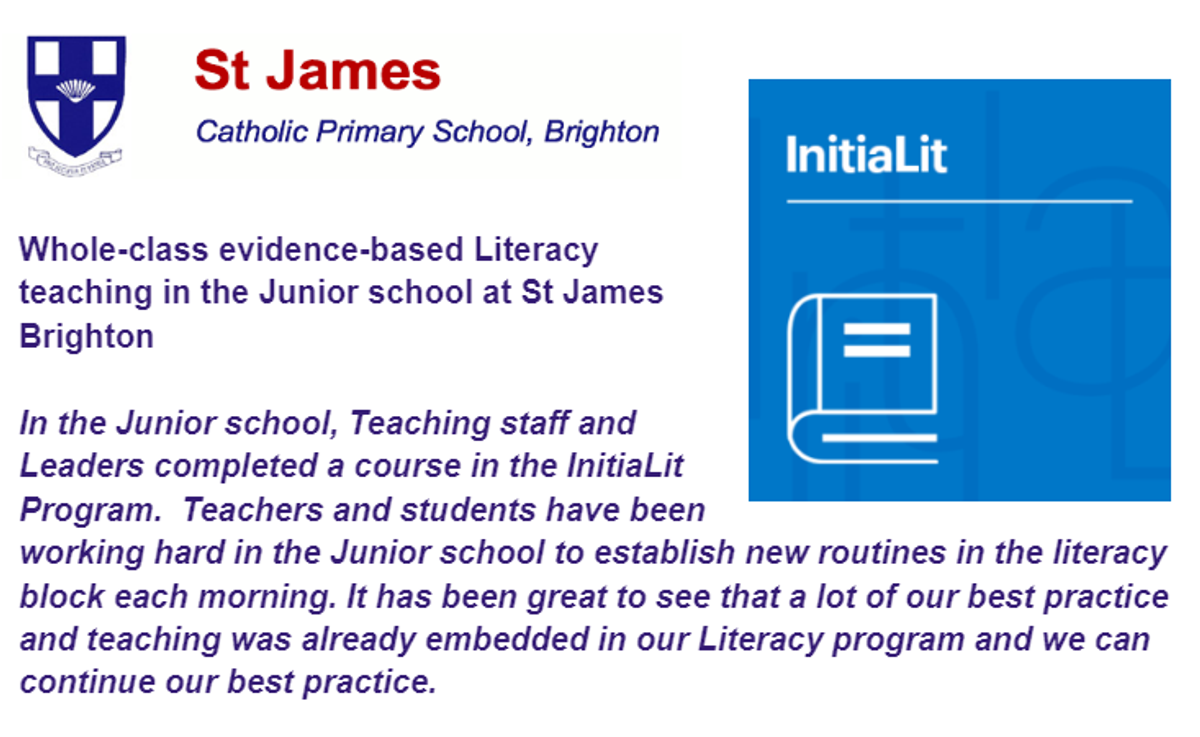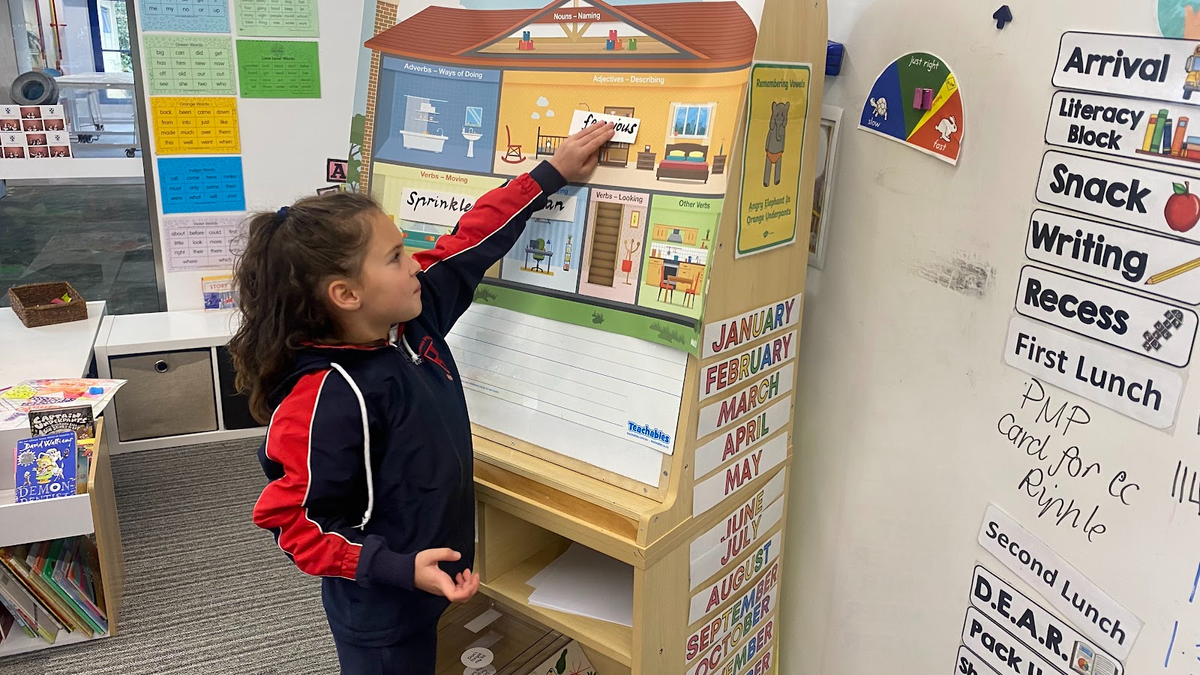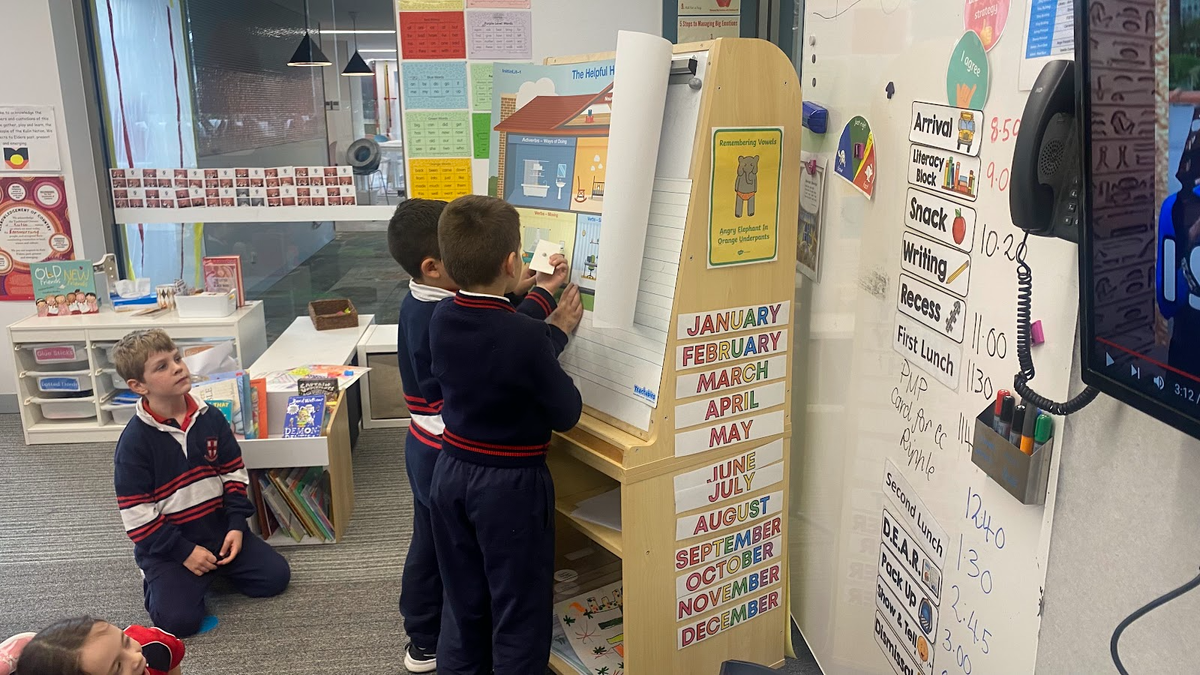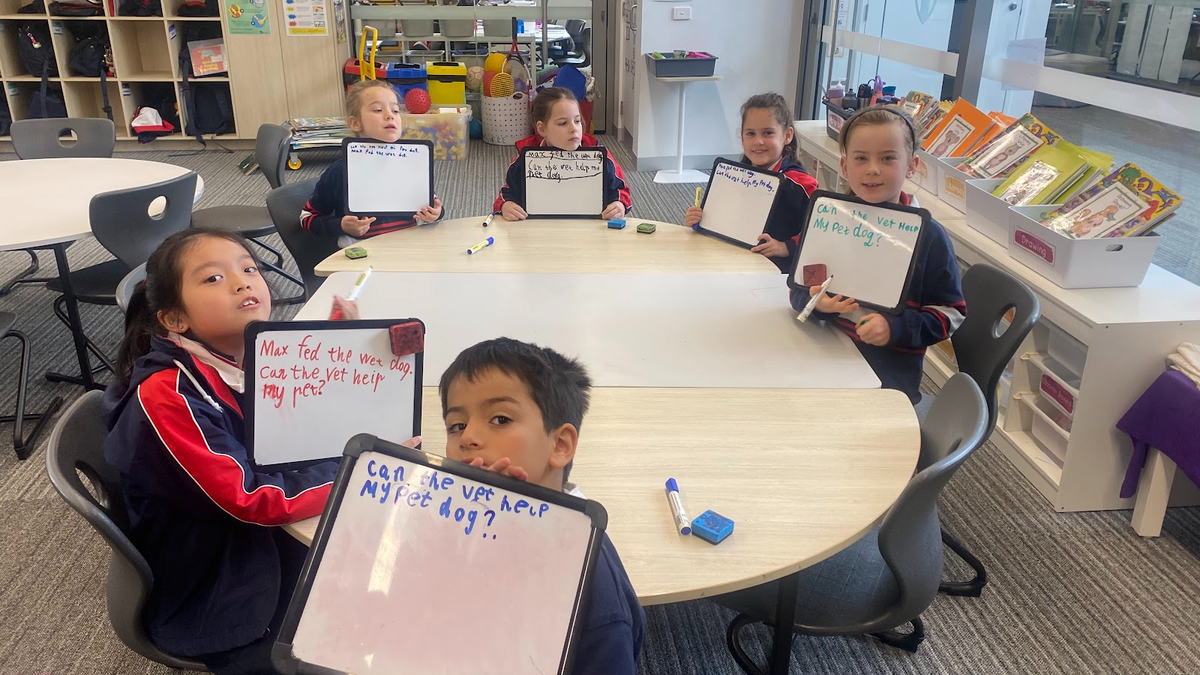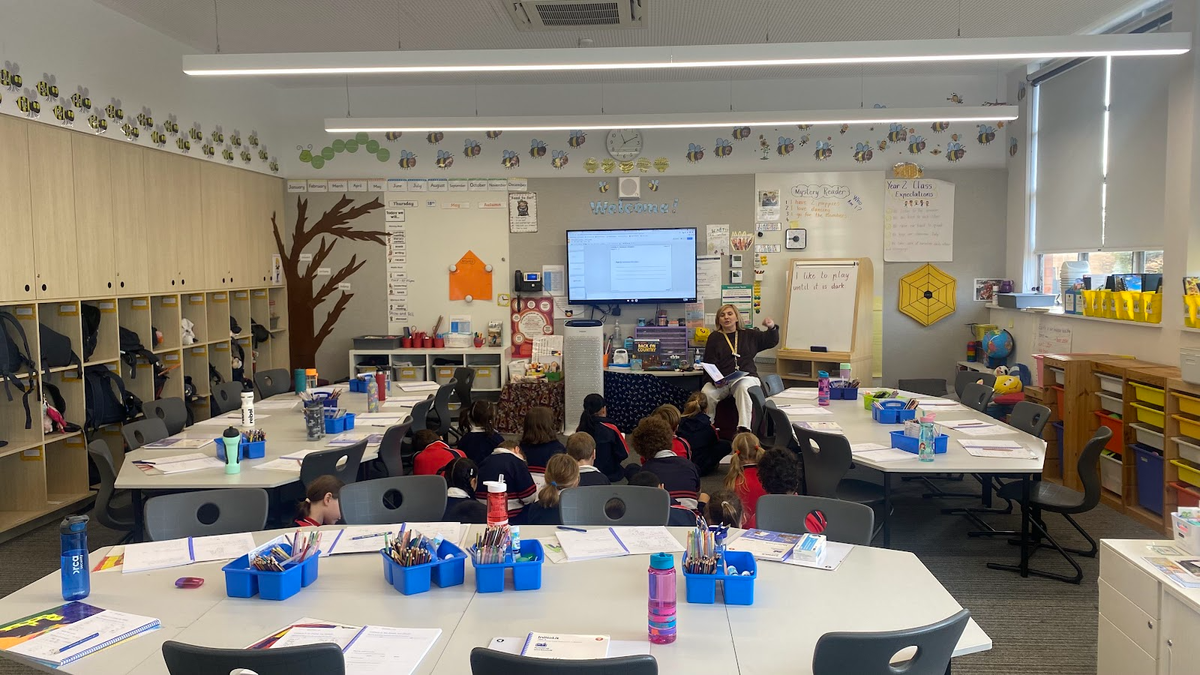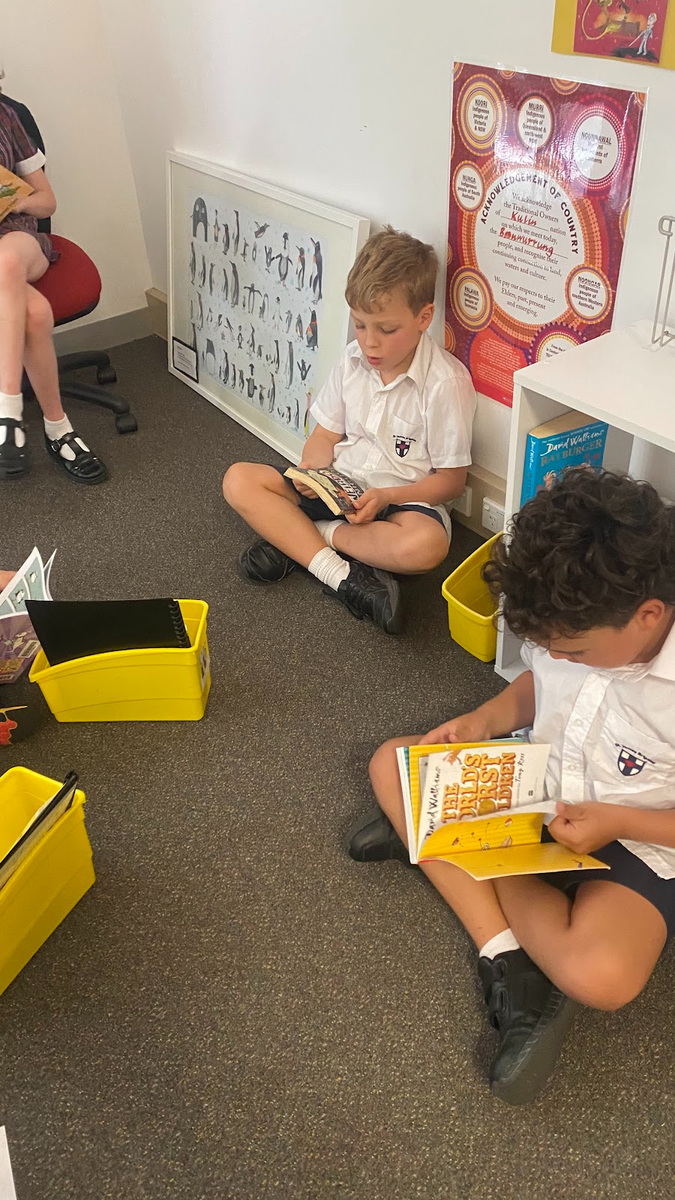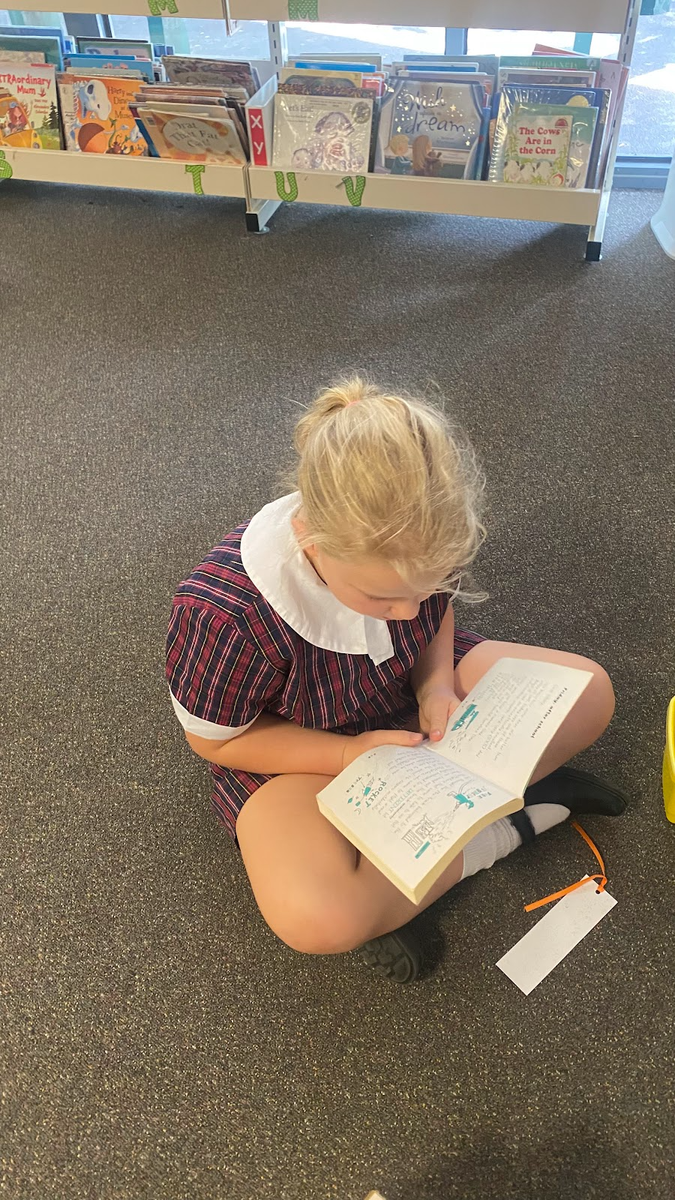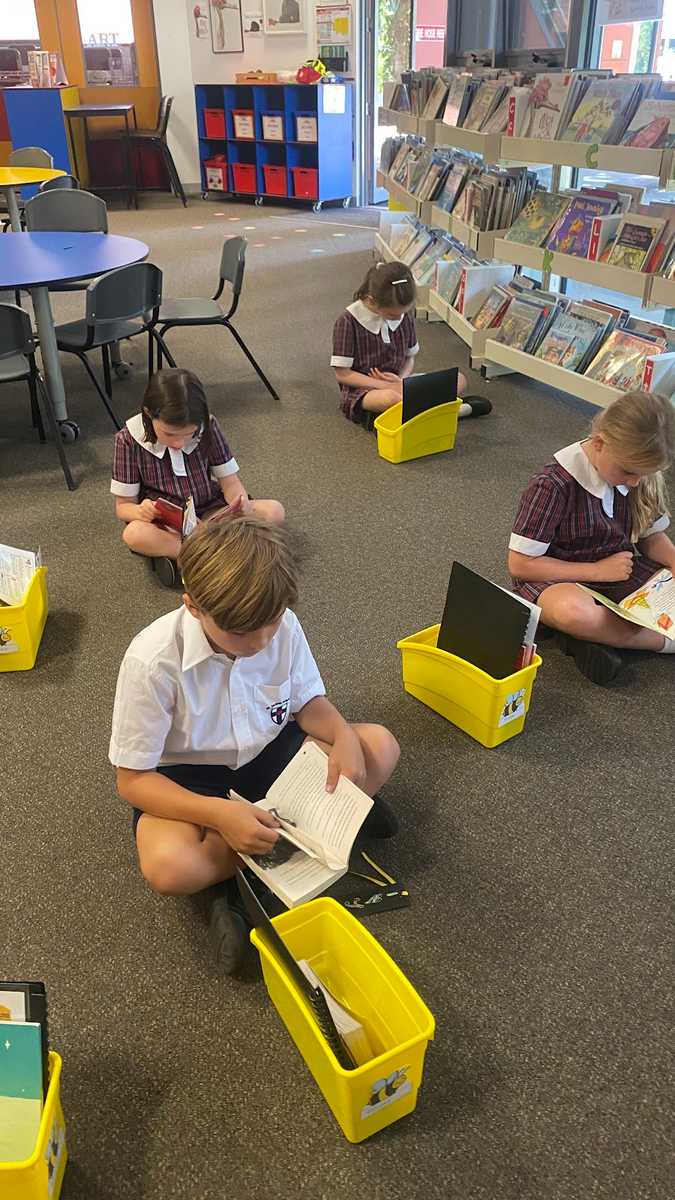Literacy

What is InitiaLit?
InitiaLit is an evidence-based whole-class literacy program providing all children with the essential core knowledge and strong foundations to become successful readers and writers. InitiaLit is a three-year program, covering the first three years of school (Prep to Year 2). It has been developed by MultiLit, a research-based initiative of Macquarie University.
What does InitiaLit do?
InitiaLit teaches children how to read and spell through daily lessons, using research-based teaching methods. It also uses a range of engaging storybooks to develop children’s vocabulary and oral language.
How does InitiaLit teach reading and writing?
InitiaLit teaches children that words are made up of sounds and that those sounds are represented by letters. Unlike learning to talk, which children do without formal instruction, children need to be directly taught the relationship between sounds and letters. In InitiaLit children will build upon the knowledge of the alphabetic code that they gained in their first year of schooling (Foundation). They will learn that a letter or letters can make different sounds, and that two or three letters together can make a sound. They will also learn key terminology such as ‘vowel’, ‘syllable’, ‘phoneme’, ‘grapheme’, and ‘digraph’. An InitiaLit lesson will take place at least four times a week.
The first 25 minutes are spent on the mat where the children are introduced to new letters and sounds or a grammatical concept in a set order. They will do a number of targeted activities to practise reading and spelling words with the new sound during this whole-class session. After the lesson on the mat, the teacher will work with different groups of children to help them read words, sentences and stories using all the sounds and letters they have been taught.
While the teacher is working with a group, the rest of the class will be doing an activity to consolidate what they have been learning. This may be a spelling worksheet, a game to practise their tricky words (words with irregular spelling patterns that cannot be sounded out letter by letter), or more practice using an InitiaLit reader. As your child’s reading becomes more confident, they will be able to read a variety of texts.
All children will benefit from the structured nature of the program, regardless of how many or how few skills they bring to the task.
How does InitiaLit develop oral language and vocabulary?
Children will enjoy a quality storybook over four teaching sessions. They will learn three new vocabulary words per book and do fun activities to help them understand when and how to use those words. They will also discuss the themes surrounding the book and think about how the story relates to their own world. These sessions will provide opportunities for children to use new words, express their thoughts clearly writing full sentences, improve their listening comprehension and develop a love of literature. Specifically teaching children new words has a very positive impact on later reading comprehension. The books will also
be linked to a writing task.
How will my child be assessed in InitiaLit?
There will be regular opportunities to assess your child’s developing reading and spelling skills. Progress monitoring, Stop and Checks and Cumulative Reviews are built into the program. Children’s reading progress relates to their ability to lift words off the page both accurately and fluently. Reading comprehension is assessed more informally during time spent in reading groups.
How can I help with my child’s reading and spelling at home?
Read a storybook each day to your child and discuss the story, pointing out any new words to enrich their vocabulary. Spend time teaching your child nursery rhymes, songs and poems. Play language games. Talk about letters and sounds in the environment. Help your child learn to spell the targetwords which relate to the sounds they are learning. Practise reading and spelling tricky words. A list of words is found at the back of the
Home Reading Diary.
When readers are sent home, make sure that you spend time listening to your child read, providing support to help them apply their knowledge about sounds and letters to the text. Talk about what they are reading, checking for comprehension.
Along with the introduction of InitiaLit in the Junior school to target each child’s literacy learning journey and academic rigour, children in P-2 work closely with Allied heath providers in Occupationall Therapy and Speech as well as access the PMP program to focus on their educational needs as well as their social and emotional development.
How can you help your child at home?
Home reading
Supporting your child at home
Why do we need to do reading at home?
Children need a lot of practice to develop their reading skills to the point of fluency. Ten to fifteen minutes of daily reading at home with a supportive adult can make all the difference. This will enable children to apply their letter-sound knowledge to reading simple text. Reading at home should be a successful and positive experience for your child. If it is turning into a very stressful time, please do consult your child’s class teacher for advice. What kind of readers will my child bring home and why? The readers that your child will bring home will contain words that they can ‘sound out’. This will enable children to use their knowledge of letter-sound relationships that they have been taught in class. You will notice that the vocabulary in these books is very controlled. This is because at this early stage of the reading process, words need to follow regular sound-
symbol patterns (e.g., dog, fan, sheep) so that children are given opportunities to work out the words for themselves, with your support. As children learn more about spelling and the ways different sounds are represented, they will be able to read more words. Over the year, and with practice, your child will begin to read with more fluency. Guessing words from a picture or from context should not be encouraged. Instead, encourage your child to look at the letter and letter combinations and think about the sounds they represent. Some words are irregular or ‘tricky’. These ‘exception’ words cannot be sounded out in the usual way and should be previewed or simply provided.
How should I support my child when reading at home?
When your child gets stuck on a word, encourage him/her to have a go at sounding out the word. If necessary,
demonstrate what this looks like first. Remember to praise with abundance when your child is successful at working out a word or when your child goes back to have another go. Never tell your child to ‘guess’ a word or use the picture to help them. Always keep the focus on letters and sounds. Learning to read initially requires a lot of effort for many children and at this early stage much patience is required. It is important to build up
confidence and allow them to enjoy success as they work out words with your help.
If your child stumbles over a tricky word that can’t be sounded out, simply give him/her the word and ask him/her to repeat it. Tricky words can be practised at home, using the list at the back of the InitiaLit–1 Home Reading Diary. Only practise the lists that have already been taught in the lessons.
Check that your child has understood what has been read. Once your child is reading more confidently, encourage him/her to think about comprehension and to self-correct if something does not make sense.
How often should my child read with me in a week and for how long?
The class teacher will decide how many books will be brought home each week. Books can be read several times to build confidence and fluency. Your child should spend at least ten minutes reading with you, about four times a week.
When is the best time to do home reading?
Provide a quiet place at home with no distractions so both you and your child can focus on the task at hand. It is a good idea to provide a rest or snack immediately after school, prior to commencing home reading so that your child is well rested and fresh. Try not to rush the session or leave it too late in the day. Creating a positive reading experience is vital.
What else can I do to support my child at home?
There will be many, many informal opportunities to develop your child’s language at home. This work can be done, and is just as beneficial, in English or in your home language. Talk to your child, using interesting vocabulary. Explain new words. Join a local library or discuss books your child borrows in the St James Library and borrow books to read to your child daily. Talk about the stories you read to your child, providing a good model. Restrict screen time and replace it with opportunities todevelop oral language. Help develop your child’s curiosity about language and the sounds within words by playing word and sound games, e.g., I spy or reciting nursery rhymes. Revise the sounds for the letters that they are learning and help them work out words using their sounds. As the year progresses, practise the tricky words that they have learned. The most important thing is to keep it light and playful but purposeful.
Antoinette Ferrari and Mandi Joplin
Literacy Leaders

